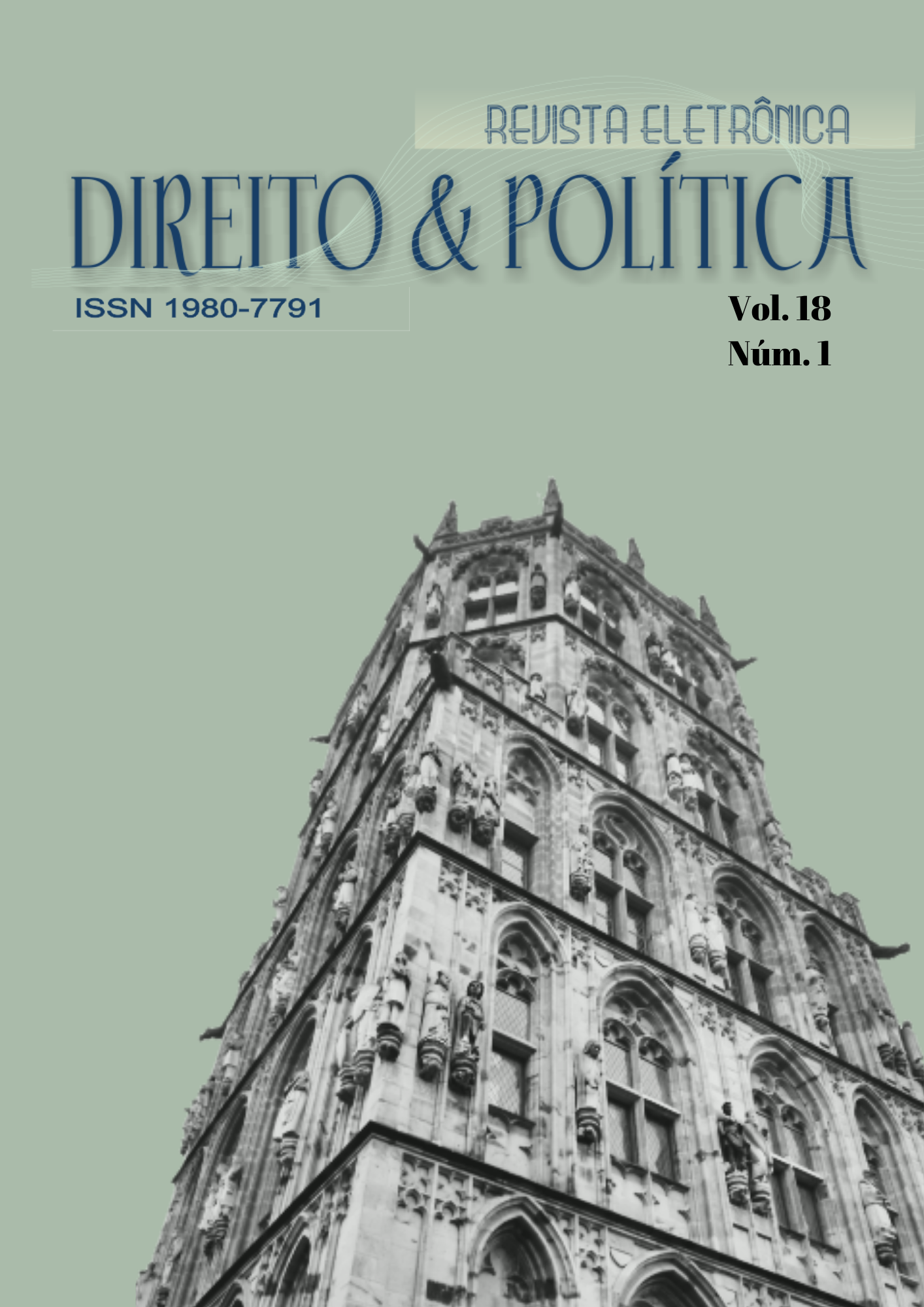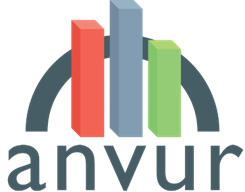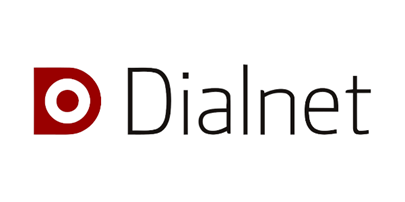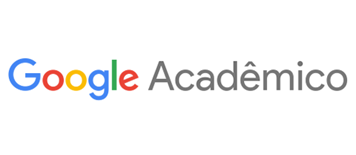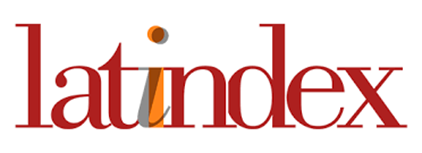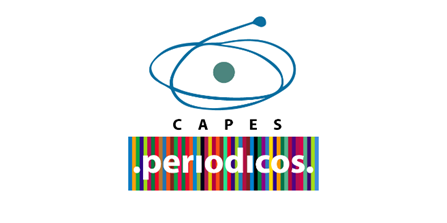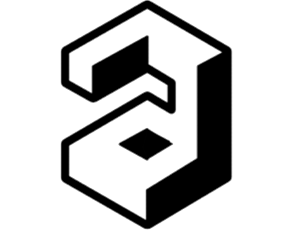CORRUPTION, JUSTICE AND ARTIFICIAL INTELLIGENCE
DOI:
https://doi.org/10.14210/rdp.v18n1.p136-156Keywords:
Artificial intelligence, Judiciary, CorruptionAbstract
Contextualization of the theme: The COVID-19 pandemic has profoundly altered human habits. The need to avoid social interactions and reduce displacements boosted the use of mechanisms that were already known, but used timidly, such as remote work, virtual meetings, telemedicine, online shopping, among others. The use of telepresence hearings and the remote assistance of parties and lawyers, made possible by the virtual counter established by the National Council of Justice, showed that the Judiciary could continue to function, even with its physical doors closed. And without loss of quality or productivity.
Methodology: The method used in the investigation phase and in the elaboration of this report was the inductive one; the research technique was the bibliographic review, with research in books, scientific journals, websites and legislation related to the themes addressed.
Objective: Explore the potential of using artificial intelligence in the Judiciary, with a specific focus on the development of applications that can contribute to the increase of investigations and prosecutions for corruption, an area in which Brazil experiences many difficulties and inefficiency.
Result: Especially in the anti-corruption area, where Brazil suffers from great inefficiency and low recovery of misappropriated assets, AI can help in the creation of new means to address an old problem. There are many possibilities, some not yet envisioned by the human mind.
Downloads
References
ALETRAS, N; TSARAPATSANIS, D; PREOŢIUC-PIETRO, D; LAMPOS, V. Predicting judicial decisions of the European Court of Human Rights: a Natural Language Processing perspective. PeerJ Computer Science, 2016, 2:e93. Disponível em: https://doi.org/10.7717/peerj-cs.93. Acesso em: 03/01/2021. DOI: https://doi.org/10.7717/peerj-cs.93
BOING, Daniel Henrique Arruda; ROSA, Alexandre Morais da. Ensinando um robô a julgar: Pragmática, Discricionaridade, Heurísticas e vieses no uso de aprendizado de máquina no Judiciário. Florianópolis, EMais, 2020.
BOSTROM, Nick. Superinteligência: caminhos, perigos, estratégias. Tradução de Clemente Gentil Penna e Patrícia Ramos Geremias. Rio de Janeiro: DarkSide Books, 2018, p. 25. (Título original: Superintelligence: paths, dangers, strategies).
BRASIL. Conselho Nacional de Justiça. Lei de improbidade administrativa: obstáculos à plena efetividade do combate aos atos de improbidade. Coordenação Luiz Manoel Gomes Júnior, equipe Gregório Assegra de Almeida... [et al.]. – Brasília: Conselho Nacional de Justiça, 2015.
BRASIL. CONSELHO NACIONAL DE JUSTIÇA. Resolução Nº 313 de 19/03/2020. Disponível em: https://atos.cnj.jus.br/atos/detalhar/3579. Acesso em: 16/11/2021; BRASIL. CONSELHO NACIONAL DE JUSTIÇA. Resolução Nº 354 de 19/11/2020. Disponível em: https://atos.cnj.jus.br/atos/detalhar/3579. Acesso em: 16/11/2021.
BRASIL. CONSELHO NACIONAL DE JUSTIÇA. Resolução Nº 372 de 12/02/2021. Disponível em: https://atos.cnj.jus.br/atos/detalhar/3742. Acesso em: 16/11/2021.
COGLIANESE, Cary; LEHR, David. Regulating by Robot: Administrative Decision Making in the Machine-Learning Era. Faculty Scholarship at Penn Law, Vol. 105, 2017.
DENG, Jinting. Should the common law system welcome artificial intelligence: a case study of china’s same-type case reference system. Georgetown Law Technology Review. N. 223, Vol. 3.2, 2019, p. 250.
DURI, Jorum. Corruption and economic crime. Transparency International Anti-Corruption Helpdesk Answer. Disponível em: https://knowledgehub.transparency.org/helpdesk/corruption-and-economic-crime. Acesso em: 11/06/2021.
ÉPOCA NEGÓCIOS. Estônia quer substituir os juízes por robôs. Edição online, 04/04/2019. Disponível em: https://epocanegocios.globo.com/Tecnologia/noticia/2019/04/estonia-quer-substituir-os-juizes-por-robos.html. Acesso em: 03/01/2021.
FERRARI, Isabela; LEITE, Rafael; RAVAGNANI, Giovani; FEIGELSON, Bruno. Justiça digital. São Paulo: Revista dos Tribunais, 2020, p. 81. Edição do Kindle.
FREITAS, Juarez; FREITAS, Thomas Bellini. Direito e inteligência artificial: em defesa do humano. Belo Horizonte: Fórum, 2020.
GAZETA DO POVO. Fux diz que corrupção da Lava Jato existiu e que anulação de processos foi por “questões formais”. Edição online, 12/06/2022. Disponível em: https://www.gazetadopovo.com.br/republica/apesar-de-anulacao-formal-corrupcao-nalava-jato-existiu-diz-fux/. Acesso em: 13/06/2022.
G1. Como as robôs Alice, Sofia e Monica ajudam o TCU a caçar irregularidades em licitações. Disponível em: https://g1.globo.com/economia/tecnologia/noticia/como-as-robos-alice-sofia-e-monica-ajudam-o-tcu-a-cacar-irregularidades-em-licitacoes.ghtml. Acesso em: 11/02/2020.
GRANSKI, Diana. The Global Judicial Integrity Network: Artificial Intelligence and Court Administration. Disponível em: https://www.youtube.com/watch?v=xnffdoIFMbw. Acesso em: 04/03/2021.
HARTMANN PEIXOTO, Fabiano. Inteligência artificial e direito: convergência ética e estratégica. 1.ed. Curitiba: Alteridade Editora, 2020.
INDIA TODAY. Possibility of developing Artificial Intelligence for court system, says CJI Bobde. Disponível em: https://www.indiatoday.in/india/story/artificial-intelligence-court-system-cji-bobde-1636116-2020-01-12. Acesso em: 04/03/2021.
KATZ, Daniel Martin; BOMMARITO II, Michael J.; BLACKMAN, Josh. A general approach for predicting the behavior of the Supreme Court of the United States. PLoS ONE 12(4), e0174698. Disponível em: https://doi.org/10.1371/journal.pone.0174698. Acesso em: 03/01/2021. DOI: https://doi.org/10.1371/journal.pone.0174698
KLITGAARD, Robert. A cooperação internacional contra a corrupção. Revista Finanças e Desenvolvimento, Mar./1998.
KLITGAARD, Robert. Controlling Corruption. Berkeley: University of California Press, 1991. Kindle Version, p. 344-345.
LEE, Kai-fu. Inteligência artificial: como os robôs estão mudando o mundo, a forma como amamos, nos comunicamos e vivemos. Tradução Marcelo Barbão. 1. ed. Rio de Janeiro: Globo Livros, 2019. (Título original: AI Superpowers: China, Silicon Valley and the New World Order).
LUZ, Eduardo Silva. Inteligência artificial na justiça: conheça 2 projetos nos tribunais. Disponível em: https://blog.sajadv.com.br/inteligencia-artificial-justica/. Acesso em 04/01/2020.
MANCUZO, Ronnie. Engenheiro do Google diz que inteligência artificial da empresa ganhou vida própria. Olhar Digital, 11/06/2022. Disponível em: https://olhardigital.com.br/2022/06/11/internet-e-redes-sociais/engenheiro-do-google-diz-que-inteligencia-artificial-da-empresa-ganhou-vida-propria/. Acesso em: 13 junho 2022.
MARTINS, Tiago do Carmo. Exame inicial do impacto da pandemia nas audiências cíveis. Porto Alegre: Tribunal Regional Federal da 4ª Região – Direito hoje. Disponível em: https://www.trf4.jus.br/trf4/controlador.php?acao=pagina_visualizar&id_pagina=2210. Acesso em: 16/11/2021.
MAURO, Paolo. Corruption and growth. The Massachusetts Institute of Technology Press. The Quarterly Journal of Economics. Vol. 110, No. 3, Aug., 1995, p.705. Disponível em: URL: http://www.jstor.org/stable/2946696. Acesso em: 22/07/2020. DOI: https://doi.org/10.2307/2946696
MCKINSEY GLOBAL INSTITUTE. ARTIFICIAL INTELLIGENCE: THE NEXT DIGITAL FRONTIER? Discussion Paper. June 2017, p. 37.
OLIVON, Beatriz. Robôs se multiplicam no Poder Judiciário. Valor Econômico, edição online, 14/06/2022. Disponível em: https://valor.globo.com/legislacao/noticia/2022/06/14/robos-se-multiplicam-no-poder-judiciario.ghtml. Acesso em: 15/06/2022.
PASOLD, Cesar Luiz. Metodologia da Pesquisa Jurídica: Teoria e Prática. Florianópolis: Conceito Editorial, 2015.
PERRILLIAT, Ricardo Salgado. La implementación de la reforma en materia de combate a la corrupción. Visión desde la secretaría ejecutiva del Sistema Nacional Anticorrupción. In Combate a la corrupción: reflexiones y experiencias multilaterales. Colección Buen Gobierno, Derechos Humanos y Combate a la Corrupción. ALVAREZ, Adriana de Santiago; TRUJILLO, Jesús Rodrigo Guadalupe Nájera (Organizadores). Guanajuato, 2020, p. 127-150.
PETTY, Aaron R. How Qui Tam Actions Could Fight Public Corruption. University of Michigan Journal of Law Reform, vol. 39, Issue 4, 2006.
ROSE-ACKERMAN, Susan. Corruption and Government: Causes, Consequences, and Reform. London: Cambridge University Press, 1999. DOI: https://doi.org/10.1017/CBO9781139175098
SADEK, Maria Tereza Aina. Combate à corrupção: novos tempos. Revista da CGU, 20, ago-dez/2019. DOI: https://doi.org/10.36428/REVISTACGU2595-668X112004
SALOMÃO, Luis Felipe (org.). Inteligência Artificial: tecnologia aplicada à gestão dos conflitos no âmbito do Poder Judiciário Brasileiro. FGV Conhecimento, 2021.
SUSSKIND, Richard. Online Courts and the Future of Justice. OUP Oxford. Edição do Kindle, p. 271.
TRIBUNAL REGIONAL FEDERAL DA 4ª REGIÃO. Processo SEI nº 0000977-98.2020.4.04.8000.
UNITED NATIONS. Sustainable and Development Goals. Creating a data-driven, incentivised dynamic for justice. Disponível em: https://sustainabledevelopment.un.org/partnership/?p=33274. Acesso em: 04/03/2021.
UNODOC – Escritório de Ligação e Parceria no Brasil. UNODOC e Corrupção. Disponível em: https://www.unodc.org/lpo-brazil/pt/corrupcao/index.html. Acesso em: 11/11/2021.
VALLS, Alejandro Pastrana. Estudio sobre la corrupción en América Latina. México: Revista Mexicana de Opinión Pública, no.27, jul./dic. 2019, p. 17. Disponível em: http://www.scielo.org.mx/scielo.php?script=sci_arttext&pid=S2448-49112019000200013. Acesso em: 20/07/2020.
Downloads
Published
Versions
- 2024-04-03 (2)
- 2023-04-04 (1)
How to Cite
Issue
Section
License
Na qualidade de autor(es) da colaboração, original e inédita, sobre o qual me(nos) responsabilizo(amos) civil e penalmente pelo seu conteúdo, após ter lido as diretrizes para autores, concordado(amos) com o Regulamento da Revista Eletrônica Direito e Política e autorizo(amos) a publicação na rede mundial de computadores (Internet), permitindo, também, que sua linguagem possa ser reformulada, caso seja necessário, sem que me(nos) seja devido qualquer pagamento a título de direitos autorais, podendo qualquer interessado acessá-lo e/ou reproduzi-lo mediante download, desde que obedeçam os Direitos Autorais.

